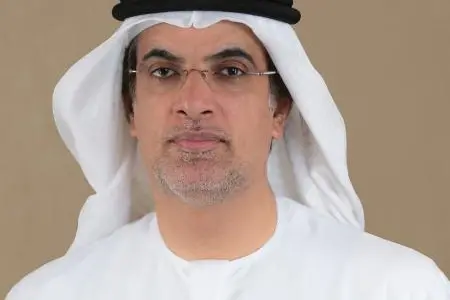PHOTO
Abu Dhabi-UAE:– The Food Security Center (FSCAD) is hosting a number of panel discussions and seminars to brainstorm on important issues related to food security and ways to formulate a sustainable development strategy on the sidelines of the 9th edition of SIAL Middle East that opened today at the Abu Dhabi National Exhibition Centre (ADNEC).
For the fourth consecutive year, the expert-led sessions at the event have drawn the participation of senior government officials, CEOs and industry experts, to identify key economic issues that may adversely impact the community. The sessions also aim to contribute to defining the roles of the public and private sector in developing a sustainable strategy to achieve social well-being and diversity in the national economy, in accordance with the UAE Strategy 2050.
The first session discussed the role of the retail sector in supporting local products while the second will highlight innovation as the main driving force in shaping a world free of hunger. The FSCAD’s series of seminars includes one titled ‘Overview of the Role of Drones in Smart Agriculture and Agricultural Sustainability’, in addition to a session discussing the role of Elite Agro, the UAE’s largest farm engaged in growing, sourcing, importing, marketing, and distributing vegetables, cereals, and fruits, in enhancing food security. A symposium titled ‘The Importance of Supply Chain and Logistics Management in Enhancing the Food Security System’ aims to highlight the efforts of the logistics sector in ensuring food security.
His Excellency Khalifa Ahmed Al Ali, Managing Director of Food Security Center, said: "Achieving food security is critical for economic growth and a top priority on the UAE government’s agenda. The UAE plays a pioneering role in developing a comprehensive national system to enable sustainable food production. We are also launching initiatives to invest in the agricultural sector in many countries to encourage sustainable agricultural development and enhance food security."
He added: “Today, investing in food security sectors, including agriculture and food industries, through public-private partnerships is crucial to fast track national growth. Doing so will develop the agricultural sector and food industries while also aiding the marketing of agricultural products through providing a safe investment environment.”
FSCAD was established in 2010 as a specialist entity that aims to develop the food security system and implement a sustainable food strategy across the UAE so that citizens and residents have access to safe and nutritious food even during emergencies and crises.
-Ends-
© Press Release 2018Disclaimer: The contents of this press release was provided from an external third party provider. This website is not responsible for, and does not control, such external content. This content is provided on an “as is” and “as available” basis and has not been edited in any way. Neither this website nor our affiliates guarantee the accuracy of or endorse the views or opinions expressed in this press release.
The press release is provided for informational purposes only. The content does not provide tax, legal or investment advice or opinion regarding the suitability, value or profitability of any particular security, portfolio or investment strategy. Neither this website nor our affiliates shall be liable for any errors or inaccuracies in the content, or for any actions taken by you in reliance thereon. You expressly agree that your use of the information within this article is at your sole risk.
To the fullest extent permitted by applicable law, this website, its parent company, its subsidiaries, its affiliates and the respective shareholders, directors, officers, employees, agents, advertisers, content providers and licensors will not be liable (jointly or severally) to you for any direct, indirect, consequential, special, incidental, punitive or exemplary damages, including without limitation, lost profits, lost savings and lost revenues, whether in negligence, tort, contract or any other theory of liability, even if the parties have been advised of the possibility or could have foreseen any such damages.




















